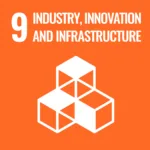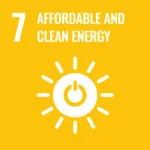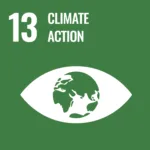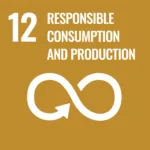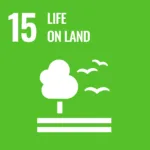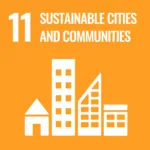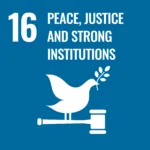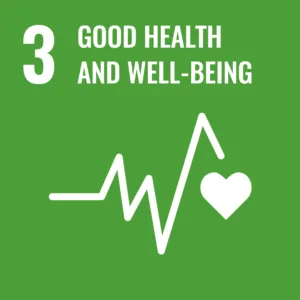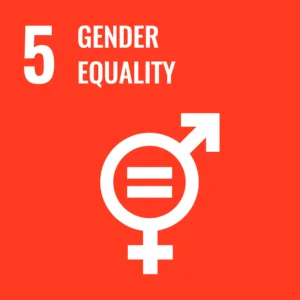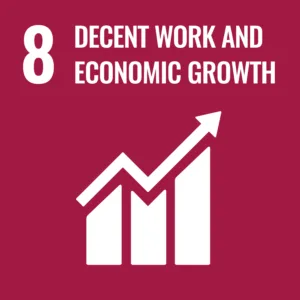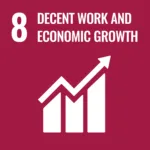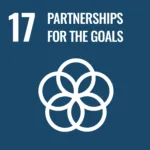Our goal is responsibility and sustainable development
We want to keep our environment vital for current and future customers and society in the Lahti region. Our mission is to produce carefree energy and to find solutions for customers that help heat, cooling and electricity to be produced, distributed and used sustainably. Our work is guided by the responsibility policy and sustainability program, in which we have set ourselves goals related to the climate, biodiversity, human rights, supply chains and raw materials. We implement the green transition while keeping our economy healthy.
We have included the implementation of the UN’s sustainable development goals in our sustainability themes. The realization of the goals is monitored with our sustainability program 2024–2028.
Our sustainability programme 2024–2028
Priorities
- Climate change mitigation
- Preserving biodiversity
- Energy and material efficiency, circular economy
- Product life cycle management and new production technologies
UN Sustainable Development Goals
Targets 2024–2028
- Science-based targets (SBTi) and climate roadmap defined and validated during 2026-2027
- Figuring out the nature footprint in 2025 and identifying and reducing the risks that cause loss of nature
- Saving measures in accordance with the Energy Efficiency Agreement
- District heating network losses will be reduced by 30% by 2028 compared to 2022
- Waste recycling rate 95% (excl. ashes) in 2028
- Investments in energy production carbon neutrality (ensuring energy emergency supply)
Priorities
- Society’s emergency of supply in electricity and district heating networks and production
- Supporting customers in the energy transition
UN Sustainable Development Goals
Targets 2024–2028
- We maintain and ensure the operation in accordance with the laws governing maintenance of safety operations
- Our co–operation with various actors and industries deepens in the energy transition and we help society move towards carbon neutrality
- Customer experience every year NPS > +50
Priorities
- A developing work community and company culture
- Occupational well-being and occupational safety
- DEI – Diversity, Equity and Inclusion
UN Sustainable Development Goals
Targets 2024–2028
- Employee satisfaction every year eNPS >30
- Lost time injury (LTI) frequency of our own personnel is zero in 2025 and contractors in 2028
- DEI program part of own personnel development plan and recruitment practices
- 100% of the personnel have completed the DEI program by the end of 2026
- Salary transparency: in accordance with the EU’s salary transparency directive by summer 2026 at the latest
Priorities
- Good governance
- Transparent communications
- Sustainable finance
- Sustainable sourcing
UN Sustainable Development Goals
Targets 2024–2028
- Sustainability reporting in accordance with the EU directive as of 2026 with data from 2025
- We maintain our certifications (ISO 45001, ISO 14001) annually and develop our operations towards ISO 9001
- We monitor and develop the responsibility (ESG) of our value chain through internal audits in 2028
- Reporting in compliance with the EU taxonomy from 2025
- 100% of our personnel attend ethical and anti-corruption training every 2 years starting in 2024
- Investments and equity ratio
- Sound finances verified by financial indicators
Sustainability management
Lahti Energy’s Board of Directors approves sustainability policies and supervises the implementation of sustainability in the company’s operations. The company’s Management Team makes strategic sustainability guidelines and monitors their implementation in the business units and support functions.
Sustainability work is part of our business strategy. Sustainability goals are increasingly integrated into business objectives that require the sharing of expertise and cooperation across organisational boundaries.
Sustainability and communications as well as HR, health, safety and environmental (HSE) organisations support our business. The functions are jointly responsible for managing our sustainability work.
Materiality assessment
Understanding the views and expectations of our stakeholders has a key impact on our success and operations. In 2023, we conducted a materiality assessment with our key stakeholders. We identified themes that we need to pay special attention to in our sustainability work.
In the materiality analysis, we examine both the impacts made by the company, i.e. how the company’s operations affect society and the environment, as well as the impacts on the company, i.e. how society or people affect the company’s operations (assessment of financial impacts on the company).
Based on the materiality analysis, we have built a sustainability programme. Based on that, in the future we will also make a sustainability report in line with the EU reporting directive.
Sustainability policies and principles
- Sustainability policy (pdf)
- Code of conduct – Sustainability requirements for suppliers and subcontractors (pdf)
- Code of ethics for personnel
